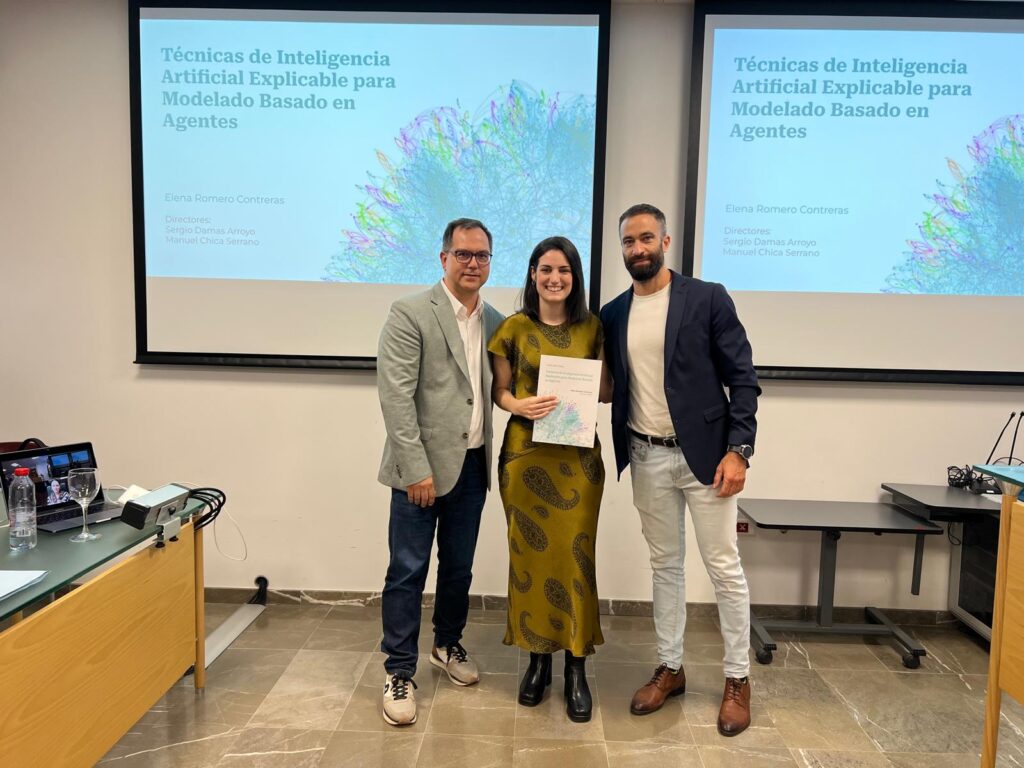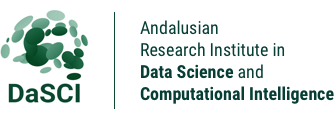DaSCI-UGR researchers use artificial intelligence to promote emissions reduction in maritime transport
7 February, 2025
The use of agent-based simulations reveals which incentives can multiply the adoption of green technologies in the shipping sector, reducing greenhouse gas emissions.
Maritime transport is a pillar of the global economy, but also one of the largest emitters of greenhouse gases. Although technological improvements have been implemented in recent years, reducing emissions in this sector is a challenge. A new research project led by the DaSCI Institute of the UGR proposes to design more effective and fairer incentives to encourage the adoption of wind technologies in the maritime industry. To do so, the researchers have used artificial intelligence.
The research focuses on wind-assisted propulsion, a technology that combines energy efficiency with lower environmental impact. The authors of this work have generated a model of agent simulations. These evaluate how different incentive policies influence the adoption of the technologies. The simulations analyse different factors: technological knowledge, economic costs and social networking dynamics among shipowners.
The study highlights that selective incentives, targeting a strategic group of adopters, are significantly more useful than uniform subsidy policies. Simulations have shown that targeting subsidies based on criteria such as energy consumption and social activity of the recipients (in this case, the shipping industry) can multiply adoption rates, optimising the impact of available budgets.
‘Our approach not only aims to accelerate the adoption of green technologies, but also to ensure that resource allocation decisions are more objective and fair,’ says UGR professor and researcher Sergio Damas.
Agent-based simulations: a key tool for objective decisions
The developed model uses a three-phase process to simulate stakeholder interactions and decisions, integrating data on economic, social and technological behaviour. This approach allows different implementation scenarios to be explored and incentive strategies to be optimised based on the results obtained.
Experiments confirm that targeting policies based on social and energy data are more effective and facilitate structural change in technology adoption networks, creating cascading effects that benefit the sector as a whole. This work has been derived from Elena Romero’s doctoral thesis research, ‘Explainable Artificial Intelligence Techniques for Agent-Based Modelling’.

A commitment to sustainability in maritime transport
This project, which combines science, innovation and sustainability, opens up new opportunities to transform the maritime industry. Promoting the use of wind-assisted propulsion technologies reduces greenhouse gas emissions and drives the transition to more efficient and responsible transport.
‘The future of maritime transport depends on the implementation of policies that not only encourage innovation, but are also sustainable from an economic and social point of view,’ concludes UGR professor Manuel Chica.
The Andalusian Inter-University Institute in Data Science and Computational Intelligence, known as DaSCI Institute, is a collaborative entity between the universities of Granada, Jaén and Córdoba. It is dedicated to advanced research and training in the field of artificial intelligence, with a particular focus on data science and computational intelligence. The institute brings together an outstanding group of researchers working on joint projects, promoting the development and application of innovative technologies in various sectors. With the aim of becoming a benchmark in its field, the DaSCI promotes the transfer of scientific knowledge to the socio-economic environment, thus contributing to technological progress and the digitalisation of industry. https://dasci.es/es/
Bibliographic reference:
Romero, Elena and Chica, Manuel and Hermann, Roberto Rivas and Damas, Sergio, Targeting incentives to adopt wind-assisted technologies in shipping by agent-based simulations (July 11, 2024). Transportation Research Part D: Transport and Environment, volume 138, 2025[10.1016/j.trd.2024.104511]
Contact:
Sergio Damas.
Departamento de Lenguajes y Sistemas Informáticos. Instituto DaSCI. Universidad de Granada. Correo electrónico: sdamas@go.ugr.es
Manuel Chica
Departamento de Ciencias de la Computación e Inteligencia Artificial. Instituto DaSCI. Universidad de Granada. Correo electrónico: manuelchica@go.ugr.es





